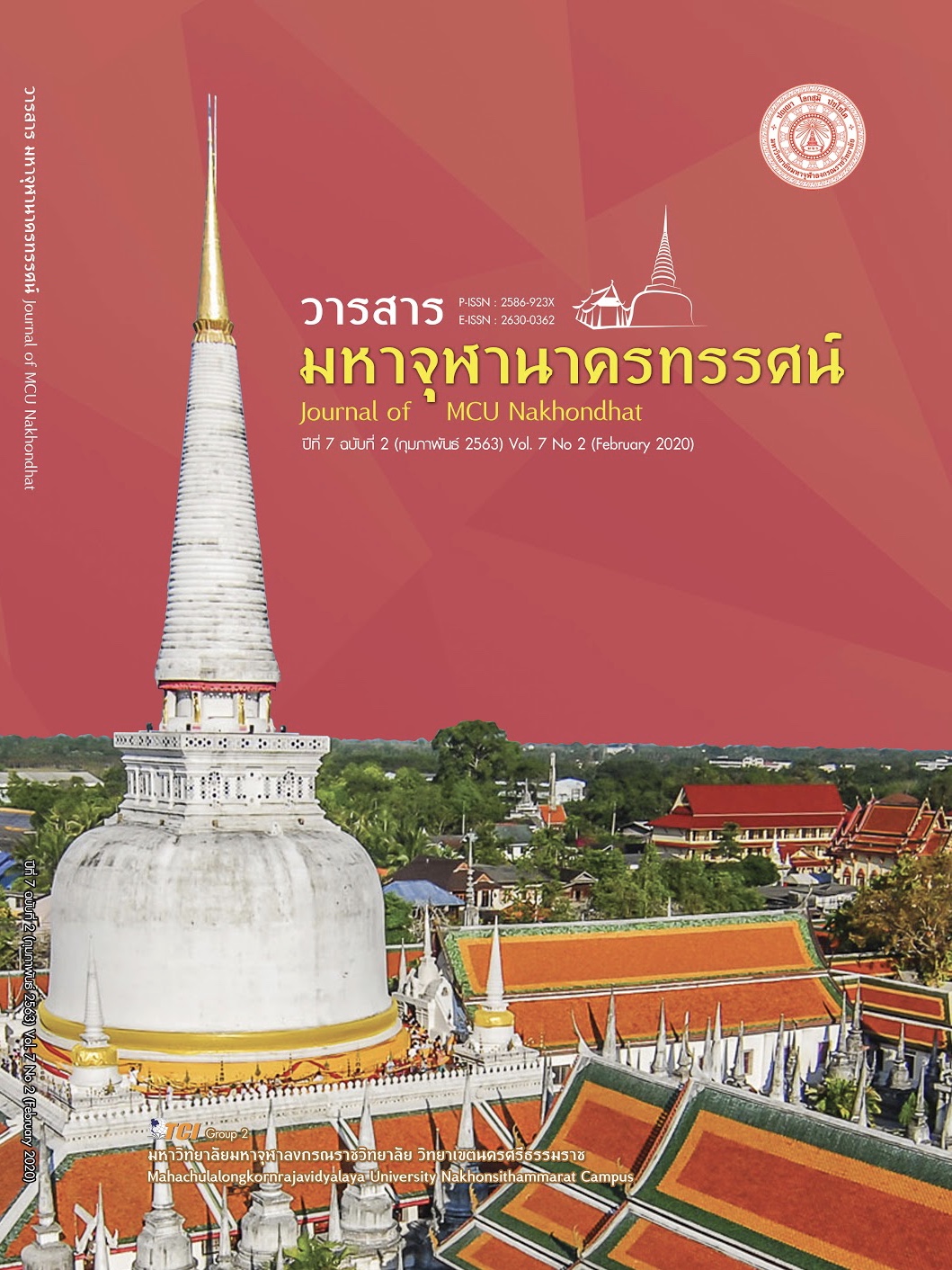AN ANALYSIS OF BUDDHIST ETHICAL VALUES IN BELIEF OF PETA (HUNGRY GHOST) AFFECTING CURRENT THAI SOCIETY
Main Article Content
Abstract
The study entitled “An Analysis of Buddhist Ethical Values in Belief of Peta (Hungry Ghost) Affecting Current Thai Society aimed 1) to study Peta in the scripture of Theravada Buddhism, 2) to investigate the influence of Belief in Peta affecting the current Thai society, and 3) to analyze Buddhist Ethical values in belief in Peta (Hungry Ghost) affecting current Thai society. The study was conducted employing a qualitative research method focusing on documentary research related to Buddhist ethical values of belief in Peta affecting current Thai society for the future application in the current society as well as the guideline for propagation.
Findings were as follows: 1) Buddhist ethical values of belief in Peta in Thai society is the belief dealing with merit and sin occur in Petabali scripture which guides people to accumulate more meritorious deed as a wholesome provision after death. Apart from the power of merit affecting the present happy life, a better life after will also be supported. Merit is a wholesome deed for cleansing and purifying one’s mind. That can be from three good acts; physical, verbal and mental. A sinful act is malicious, vice, malevolent, and unwholesome which brings about troubles. The state leading to woeful way causes one’s mind to vice, that is to say, one’s state of mind can be deprived on account of the unwholesome act which can be committed in three ways, body, speech and mind. 2) Regarding Buddhist ethical value, Buddhist teachings are deeply valued to Thai life and influential to Thai people in terms of performing good deeds and inspire Thais to be kind and generous. Buddhism is regarded as Thai cultural root which can be clearly seen from many ceremonies and rituals from birth or death. Even after death, there is still a ceremony concerning merit-making to dedicate merit to the departed. Teachings in the scripture can be a refuge for people in the society to realize contribution done by ancestors that tried their best to accumulate wealth and properties and inherited to the generations.
Article Details
References
พระธรรมปิฎก (ป.อ.ปยุตโต). (2538). พจนานุกรมพุทธศาสตร์ ฉบับประมวลธรรม (พิมพ์ครั้งที่ 8). กรุงเทพมหานคร: โรงพิมพ์มหาจุฬาลงกรณราชวิทยาลัย.
พระธรรมปิฎก (ป.อ.ปยุตโต). (2542). ธรรมนูญชีวิต (พิมพ์ครั้งที่ 19). กรุงเทพมหานคร: บริษัท สหธรรมมิก จำกัด.
พระธรรมปิฎก (ป.อ.ปยุตโต). (2550). พจนานุกรมพุทธศาสตร์ ฉบับประมวลธรรม (พิมพ์ครั้งที่ 15). กรุงเทพมหานคร: สำนักพิมพ์จันทร์เพ็ญ.
พระยาอนุมานราชธน. (2508). ประเพณีเบ็ดเตล็ด (พิมพ์ครั้งที่ 2). กรุงเทพมหานคร: สมาคมสังคมศาสตร์แห่งประเทศไทย.
มหาจุฬาลงกรณราชวิทยาลัย. (2539). พระไตรปิฎกภาษาไทย ฉบับมหาจุฬาลงกรณราชวิทยาลัย . กรุงเทพมหานคร: โรงพิมพ์มหาจุฬาลงกรณราชวิทยาลัย.
วิทย์ พิณคันเงิน. (2515). ความเป็นมาของมนุษยชาติ. กรุงเทพมหานคร: โรงพิมพ์รุ่งโรจน์การพิมพ์.


